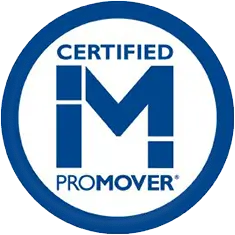Choosing the right moving company can be a daunting task, whether you’re relocating around the corner, across the country, or around the globe. With so many options available, it’s essential to understand your specific needs and the resources at hand. In this guide, we explore the complexity of moving and how to select the best company for your situation.
Understanding Different Types of Moves
Before you dive into choosing a moving company, it’s crucial to understand the differences between local, long-distance, and international moves. Each type presents its own set of challenges and requirements which can affect your choices.

Local Moves Explained
Local moves are defined as moves that occur within a short distance, typically within the same city or town. Generally, these moves are less complex and can often be completed in one day. Local moving companies usually charge by the hour, which means that your total cost will depend significantly on the time it takes to complete the job.
When planning a local move, it’s advantageous to gather recommendations and read reviews about nearby movers. Since local moves are less complicated, you can often negotiate better deals and receive more individualized service. Additionally, local movers often have a better understanding of the area, including traffic patterns and the best routes to take, which can help streamline the process. It’s also beneficial to consider the time of year for your move; for instance, summer months tend to be busier for movers, which may affect availability and pricing.
Long Distance Moves: What to Know
Long-distance moves involve relocating across state lines or over a hundred miles away. These moves are often more complex than local ones and may require additional planning and logistics. Many long-distance moving companies provide a flat rate for the move based on the distance and the estimated weight of your belongings.
It’s vital to get written estimates and understand the terms and conditions of the moving company. Some companies may offer additional options for packing, loading, and unloading your belongings, which can influence your total costs significantly. Moreover, long-distance moves may require you to consider the timing of your move, especially if you have specific dates in mind. Be aware that some companies may have limited availability during peak moving seasons, which can lead to delays or increased costs. It’s also wise to check if the company provides tracking services for your shipment, giving you peace of mind as your belongings travel to their new destination.
International Moves: A Brief Overview
International moves are perhaps the most complicated type, involving customs regulations, international shipping laws, and potentially multiple transportation methods (air, sea, or land). If you’re planning an international move, it’s essential to engage a moving company with expertise in global relocations.
Be prepared for additional paperwork and time considerations when moving internationally. Make sure to inquire about services such as packing, storage, and the handling of delicate or valuable items, as these can vary greatly from one company to another. Additionally, understanding the customs regulations of your destination country is crucial; some items may be restricted or require special documentation. It’s also beneficial to familiarize yourself with the cultural aspects of your new home, as this can ease the transition and help you settle in more comfortably. Engaging with expat communities or local resources can provide valuable insights and support as you navigate your new environment.
Factors to Consider When Choosing a Moving Company
With an understanding of the different types of moves, it’s time to consider what factors you need to look for when choosing a moving company. This decision can greatly impact the ease and success of your moving experience.
Reputation and Reviews
One of the most critical factors to consider is the reputation of the moving company. Start by asking for recommendations from friends and family. Online reviews and ratings can provide you with a wealth of information about other customers’ experiences.
Check platforms such as the Better Business Bureau and consumer review sites to verify the credentials and reliability of the moving company. A company with consistently positive reviews is likely to offer a better moving experience.
Pricing and Value for Money
While it may be tempting to go with the cheapest option, it’s crucial to consider the overall value for money. Understanding how a moving company structures its pricing can help you make a more informed decision. Look out for hidden fees and extra charges that may not be included in the initial estimate.
Get at least three quotes from different movers and compare their services and prices. Cheaper doesn’t always mean better, and it’s worth investing in a reliable moving service that meets your needs.
Services Offered
Not all moving companies offer the same services. Some may specialize in certain types of moves or provide additional services, such as packing, unpacking, and storage solutions. Make sure to determine what services are essential for your move and find a company that meets those needs.
For example, if you have valuable or delicate items, consider hiring a company that offers specialized packing services. This added level of care can help protect your belongings during transit.
Insurance and Liability
Understanding the insurance options available is essential for peace of mind during your move. Reputable moving companies will offer different levels of liability coverage to protect your belongings in case of loss or damage.
Make sure to read and understand the insurance policies of any moving company you consider. Often, moving companies provide basic coverage included in the price, while more comprehensive options are available for an additional fee.
Questions to Ask Potential Moving Companies
Once you’ve narrowed down your choices, the next step is to ask potential moving companies questions that will clarify their policies, practices, and capabilities.
Inquiring About Experience
Don’t hesitate to ask how long the company has been in business and how many moves they handle annually. Experienced movers are more likely to have well-established processes and knowledge to deal with unexpected challenges.
Consider asking for references from previous customers to gain insight into what you can expect based on their experiences with the company.
Understanding Their Pricing Structure
Ask detailed questions about how the company charges for their services. Is it hourly or by a flat rate? What factors can cause the price to change? Understanding the pricing structure can help avoid misunderstandings and unexpected costs on moving day.
Always insist on receiving a detailed estimate in writing that includes a breakdown of all charges.
Discussing Your Specific Moving Needs
Every move comes with its specific needs, so communicate yours clearly to the moving company. Whether you require storage solutions, assistance with special items, or flexible scheduling, ensure that the movers can accommodate your requests before making a final decision.
Transparency about your needs will help you find a company that can deliver an exceptional service tailored to your situation.
Preparing for the Move
After selecting the right moving company, it’s time to prepare for the logistics of your upcoming move. Proper preparation can reduce stress and help ensure the entire process runs smoothly.
Packing Tips for Different Types of Moves
Packing can vary considerably between local, long-distance, and international moves. For local moves, consider packing efficiently and label boxes clearly to make unpacking easier. Use sturdy boxes and packing materials to keep your items secure.
For long-distance moves, prioritize protecting fragile items and consider disassembling larger pieces of furniture to save space. If you’re moving internationally, research the specific regulations regarding shipping items abroad, and utilize professional packing services when necessary.
Dealing with Moving Day Stress
On moving day, stress can easily accumulate. To help alleviate this, make sure to have a plan in place. Create a detailed schedule for the day, including what time you expect the movers to arrive and when to disconnect utilities.
Having a small bag with essentials, including snacks and important documents, can also be a lifesaver during the busy day. Remember to stay calm and communicate with your moving team to help ensure a smooth transition.
Post-Move Checklist
Once you’ve settled into your new home, it’s a good idea to have a post-move checklist to ensure that everything is in order. Verify that all items arrived safely and check for any damages. If anything is missing or damaged, contact the moving company immediately regarding their insurance policy.
Additionally, take some time to unpack and organize your new space. Setting up your new home in an efficient manner can make a world of difference in how quickly you feel settled in and comfortable.
By following this guide and keeping these crucial aspects in mind, you can confidently choose the right moving company for your local, long-distance, or international move, ensuring a smooth transition to your new space.
















